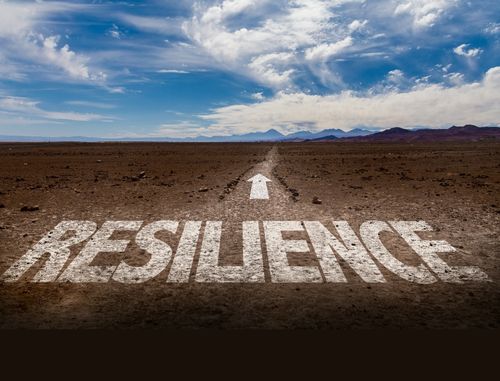
October 10, 2022
Every day, I marvel at the resilience of the individuals we serve. Whether it be veterans wounded both physically and psychologically with the scars of battle; men and women struggling to find a job and support their family; young people who have moved from foster home to foster home; those struggling with substance abuse disorders or mental illness; and those who have been incarcerated only to re-enter society defined by the stigma of their past.
Yet above all, I am struck by their extraordinary resilience.
What are the catalysts for resilience? There is considerable research about what makes human beings resilient. Resilience is found when an individual feels: competent—skills and attitude to meet whatever challenges arise; confident—in their various abilities; connection—to a mentor, a leader, a family member who has faith in their ability to succeed; contribution—to something greater than him or herself; and control—over the basic aspects of their lives.
While the issues are clearly very different, organizations, too, are also susceptible to the impact of their environment. Change is constant. Contracts shift. Foundation awards run their course. Federal funding streams change. The political climate shifts with new leaders. New technology is introduced. Staff move into new roles. A pandemic rocks our understanding of the world. These forces create stress—sometimes significant stress. But like people, organizations can build their resilience muscles so that change is understood and managed effectively and collectively.
These “c’s” of resilience for human beings are equally as applicable to organizations.
For an organization to feel competent, there needs to be a common understanding of mission and short- and long-term goals, the measures used to assess goal achievement, and ready access to these data. Transparent discussions about impact data assists staff in feeling confident that their efforts are making a difference.
Organizational confidence comes from leaders who are clear and focused on the right things at the right times. A tremendous sense of organizational confidence results from leaders who are ahead of the game, on top of market trends and who rapidly respond to crisis—such as the recent pandemic.
Organizational connection is essential—to each other, to our Board, our funders, our stakeholders, and of course, to those we serve. These connections help us feel a part of something greater than ourselves and enable us to leverage critical relationships to advance organizational goals.
Contribution is an easy “muscle” to fall back on as every day we are able to see the fruits of our hard work in the successes of those we serve. This “doing” makes us feel we are part of something important, something larger than ourselves.
And finally, control … while we may not have a great deal of control over the future, as I have discussed many times in Insights, we absolutely have the ability and the responsibility to prepare for it by carefully tracking to the evolving environment and emerging market trends.
Resilient organizations are able to sustain large and small internal and external shifts—ensuring that they are able to continue to do mission-driven work.
As always, I welcome your thoughts.